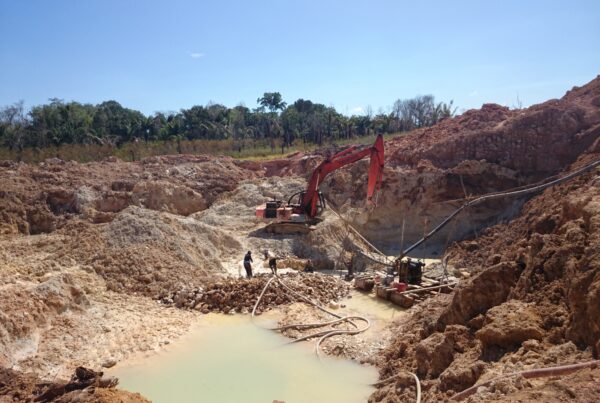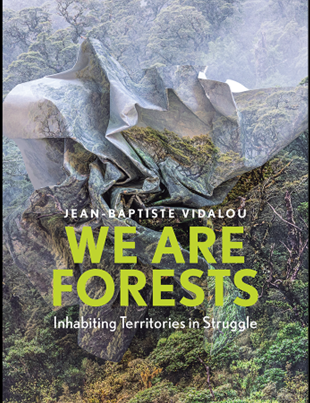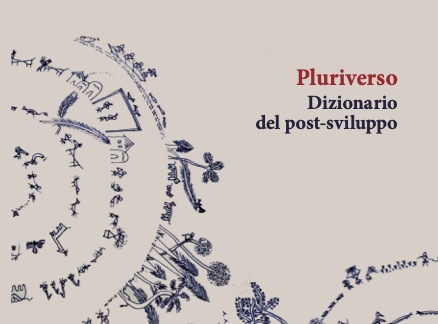By Odomaro Mubangizi, Amber Murrey and Maimuna Islam*
Last year, Jimma University in Ethiopia was the location for a five-day workshop to address colonial hierarchies embedded in academic publication and to foster writing communities. This is a brief reflection on said workshop, which was titled “Setting Forth at Dawn: A workshop on the Geopolitics and Practices of Academic Writing.”
The workshop had three main objectives:
- To share theories and praxis on decolonizing academic research in the global South
- To discuss the realities faced by African-based scholars as they seek to publish and the ways in which they craft research agendas in such a context
- To workshop scholars’ on-going projects as a means to cultivate publication know-how and foster writing communities
During the workshop, we debated the challenges faced by global South scholars who are already, in their/our own creative ways, countering systemic disadvantages of working in a higher education system dominated by the global North. Although African scholars face real limitations, these are surmountable without externally driven restructuring.
Our workshop was not grounded on a place, discipline, or personality. Rather, our intention was to collaboratively explore the ways in which knowledge can be decolonized, often through small pivots that become transformative practices within disciplines.

These images feature breaks in discussion throughout our five-day workshop. Photos by Derogy Ndewa
The workshop came to fruition within a context of mounting critique against, and self-awareness of, the “university in crisis” across Africa and Ethiopia in particular. This “crisis” includes the rapid growth of departments and institutions in Ethiopia, where the student population has more than tripled in the last fifteen years, while the university system favors administrative posts over teaching and research positions.
Moreover, scholars on the continent experience diverse forms of exclusion and oppression, these exclusions include:
- Linguistic, epistemic, geographic, cultural, and spatial exclusions in a global university system dominated by Northern Anglophone countries
- Limited access to high-speed Internet and lack of access to academic journal databases
- Persistent material difficulties associated with modest infrastructures, including routine load shedding, water cuts, and augmented risks of illness
- Psychological and political oppressions
In a climate of ongoing political protests, scholars face restrictions on the freedom of expression. This includes through increased technological difficulties due to state-initiated media censorship (e.g., email and social media blockages, and frequent periods of intentional suppression of the Internet).
In Ethiopia, both salary and promotion are linked to the scholar’s quantity of publications. The pressure to publish without due support creates an implicit pressure for scholars to publish in predatory journals—those journals operate without editorial oversight or academic integrity, while charging exorbitant author fees. During the workshop’s opening plenary, Dr. Amber Murrey addressed the need to differentiate between legitimate academic and predatory publishing and the pitfalls of having articles published in predatory venues.
Collectively, participants discussed practical ways in which African institutions can restructure their promotion policies to combat a culture of silence that condones predatory publishing. A commitment to decolonize knowledge demands predatory publishers and predatory conferences be fought because they permit institutions to dodge responsibility for nurturing original and rigorous knowledge creation all the while such publication venues promote sub-par research and further perpetuate the academic exclusions felt by scholars in the South.

Collected images from workshop discussions. Photos by Amber Murrey
Decolonizing knowledge demands multi-pronged approaches
- Decolonizing publications
- Decolonizing research and methodologies
- Decolonizing curriculums
- Decolonizing communicative praxis
Dr. Patricia Daley explored the need for decolonizing our methodological approaches. The dominance of quantitative frameworks renders social life quantifiable and simplifies complex realities. Lives become quantifiable, pain becomes quantifiable, and conflict becomes quantifiable. In such frameworks, knowledge is a commodity.
We considered the wisdom of African proverbs as a form of knowledge. “Little attempt has been made to study African proverbs as a tool in knowledge production,” Dr. Odomaro Mubangizi asserted. Yet, “African proverbs are a concise expression of African ontology, epistemology, moral, social and political philosophy,” he added.
Dr. Maimuna Islam spoke about the ways in which radical nonwhite/ethnic voices remain persistently absent in the US higher education and publishing systems. She connected the ongoing decolonial struggle in the global South to the almost 50-year old movement for racial parity in the US. Over 80-90 percent of book editors, book reviewers, and senior professors in the US are white. Despite silencing(s) and exclusions, waves of minorities in the US have persistently carved out spaces for non-white, non-dominant perspectives and narratives—these methodologies are pertinent in non-US institutions.
Safia Aidid spoke of the first Somali Studies academic journal—a journal that was founded by editorial team and board absent of any scholars of Somali descent. The workshop was the first occasion in which the #CadaanStudies debate on social media was publically discussed in the Horn of Africa. While this was a victory, it simultaneously reinforces the need to open up more spaces on the continent for critical debate on race, coloniality, power, and knowledge.

Workshop conveners stand in front of event banner. From left: Tesfaye Gebeyhu, Patricia Daley, Odomaro Mubanguizi, Safia Aidid, Amber Murrey, Maimuna Islam, and Diana Van Bogaert. Photo by Derogy Ndewa)
The workshop worked through some of the challenges of writing, submitting, and publishing. A considerable amount of time was devoted to open and semi-structured conversations, either in small or large groups. Groups of four to five scholars discussed their work, talked about particular challenges that Ethiopia- and Africa-based scholars face, noted past achievements, and made suggestions for colleagues. Participants submitted articles prior to arriving. Time was also devoted to freewriting, most often under the direction of Diana Van Bogaert.
Each participant was placed with a convener who read one of their articles and provided feedback and suggestions for reflection, revision, and publication. These articles reflected the broad and rich research that is occurring across the continent. Dr. Tesfaye Gebeyhu led the group through a peer review activity, in which the nuances and idiosyncrasies of reviewing were demystified and rendered approachable.
The co-conveners found that the drafted articles often relied on dominant positivist academic methodologies and drew from Western more than African sources—even though our discussions demonstrated the thirst for more regional perspectives. This practice made sense. After all, journal editors and peer reviewers of western journals would most likely respond to article submissions with questions about why has the authors not cited leading scholars from Northern institutions. Further, curriculums on the continent too often follow dominant Euro-American norms.
The conveners encouraged the participants to foreground voices of scholars working at universities on the continent. We acknowledged that in order to get published in Northern journals, we must follow established rules and repertoires set by the North. However, there are also radical journals with editors who welcome alternate, creative, and audacious expressions and interpretations of our social worlds and we must seek out these spaces.
Participants enthusiastically called for follow-up events to be held and collectives to be formed in Ethiopia. This pointed to larger feelings of academic isolation, while reasserting the necessity of critical and radical exchanges within Ethiopia and across the continent. We recognized the investment needed—both by our institutions and ourselves—to create meaningful scholarship. The growing acceptance of the slowness of scholarship has an important role to play in knowledge decolonization.

Group visits to Jimma’s extensive agricultural fields, where our group learned the history of coffee cultivation from its birthplace. We also visited the palace of King Aba Jifar I (1830-1855). Photos by Derogy Ndewa
While we framed our engagements as “decolonizing,” our emphasis was not on large-scale decolonization per se, but rather on small-scale, self-consciously slow, collaborative interventions as we set out to learn together.
A longer version of this reflection is available on The African Review of Political Economy.
The Jimma University writing workshop was collaboratively organized by: Amber Murrey, Sintayehu Demeke, Bisrat Gebru, Anteneh Tesfahun, Eline Joor, Addisu Tegegne, Tadele Assefa, Isaac Abotebuno, and Kassahun Molla.
* Dr. Odomaro Mubangizi writes on social ethics and social philosophy in the context of globalization. He is the Editor of The Justice, Peace and Environment Journal and is the founding Editor of Chiedza, Journal of Arrupe College in Harare. He teaches Social and Political Philosophy at the Institute of Philosophy and Theology at Addis Ababa and works on the Great Lakes Open University.
Dr. Amber Murrey researches and writes about the transformations of life, struggle, and place amid colonial violence(s). She is currently a Visiting Assistant Professor of International Development and Social Change at Clark University, where she teaches courses in advanced qualitative research methodologies, critical development studies, and anthropology for international development. Amber is presently collaborating with Dr. Mubangizi and others to organize a two-part follow-up decolonizing workspace that challenges the conventions of academic parlance and communicative praxis. The first part of this critical workspace—Decolonizing Communicative Praxis with “Words that Remake Life”—will take place at Clark on 9-10 April 2017. For further information, please email her at [email protected].
Dr. Maimuna Islam is an associate professor at The College of Idaho, where she teaches postcolonial and immigrant literatures, fiction writing, and first year seminar. She has written, presented, and taught on Islamophobia, the war on terror, encounters between the Western and the Muslim worlds, American immigrant experiences post-1967, and minority pedagogy.






Excellent thanks. A reminder I have a guide to reliable OA journals across the social sciences, that are cheap or free to publish in. The struggle continues. https://simonbatterbury.wordpress.com/2015/10/25/list-of-open-access-journals/
Our journal on political ecology does publish a fair amount from Africa – but, yes, it has to be well written by the time it reaches publication. Unlike many journals, we offer input (in our spare time- no budget!). http://jpe.library.arizona.edu